Since 1996, British businesses disposing of commercial waste at landfill sites have been required to pay an additional tax rate under the UK's Landfill Tax regulations.
The tax is an environmental measure designed to reduce the quantity of non-recyclable waste generated by industries, such as construction, by introducing a financial penalty for disposing of this waste.
But what is Landfill Tax, how much is Landfill Tax under the current rules, and what Landfill Tax exemptions might apply to save your business money? Let's find out.
What is the UK Landfill Tax?
The UK Government introduced the tax in 1996 under the Finance Act 1996 (sections 39-71 and Schedule 5) and the Landfill Tax Regulations 1996 (SI 1996 No 1527).
It does not change businesses' environmental obligations directly, but is charged as a tax on disposing of materials, therefore encouraging the use of recycling, waste recovery and composting.
What does the tax pay for?
The Landfill Tax primarily serves as a way to discourage businesses from sending materials to landfill, as well as raising funds for HM Revenue & Customs to put towards government environmental schemes.
In 2023-24 it raised £489 million. This amount is 22% less than the previous year, a fall of £137 million, as more businesses are finding alternative ways to dispose of their waste.
Landfill Tax rates
There are two Landfill Tax rates:
-
Standard rate, charged on active or hazardous waste materials
-
Lower rate, charged on inactive and inert waste materials
The Landfill Tax (Qualifying Material) Order 2011 sets out the full list of materials that qualify for the lower rate.
So, how much is Landfill Tax for each type of material?
Standard rate
From 1 April 2025, the standard rate of UK Landfill Tax is £126.15 per tonne. This is an increase of 21.6% from the previous year's rate of £103.70.
The standard rate applies to materials considered more hazardous to the environment, as well as all materials disposed of at an unauthorised landfill site.
Lower rate
The lower rate of UK Landfill Tax is just £4.05 per tonne, up from £3.30 in 2024-25.
It's much lower because the qualifying materials are less harmful to the environment. Some examples include:
-
Materials that emit very few greenhouse gases during decomposition
-
Materials that are unlikely to release contaminants into the environment
You need to provide evidence for lower-rated materials. This should include a written waste transfer note and record the presence and quantity of any standard-rated material among the low-rate waste.
Mixed loads
When disposing of a mixed load, unless the quantity of standard-rated material is negligible, the entire load should be charged at the standard rate. It is therefore essential to keep lower-rated materials separated on-site as much as possible.
Landfill Tax exemptions
Several landfill tax exemptions apply to the disposal of specific categories of waste at authorised landfill sites. Disposal at unauthorised sites will still attract the highest rate of Landfill Tax.
Some exemptions include:
-
Materials dredged from inland waterways and harbours
-
Naturally occurring materials from mining and quarrying
-
Burial of pets in authorised pet cemeteries
-
Lower-rated material used to fill quarries
-
Waste generated by visiting NATO forces
HMRC Excise Notice LFT1 outlines the exemptions in more detail.
How to cut your tax
Higher standard Landfill Tax rates make it more important than ever to cut your exposure to this cost. One of the most direct ways to do this is by segregating your business waste on-site as it is generated.
Keep waste separated on-site
Using coloured wheelie bins, plastic recycling bins, and metal dumpsters allows you to separate waste materials so lower-rated waste does not become mixed in with standard-rated materials.
This ensures that you don't pay the higher rate of Landfill Tax unnecessarily, while keeping standard-rated waste separate for reuse in permitted ways that don't require you to send it to landfill.
Get the right bins for your business with Wheelie Bin Solutions
Landfill taxes in the UK have increased significantly over the past few years. When the government introduced the Landfill Tax regulations in 1996, businesses paid just £7 per tonne for the standard rate. It's only since 2023 that the rate has been over £100.
But the falling overall total of Landfill Tax raised is proof that with the correct waste disposal procedures in place, your business can save substantial amounts of money.
Reduce Landfill Tax with recycling bins
Wheelie Bin Solutions has recycling bins to help you put in place a comprehensive waste management strategy:
-
Wheelie bin sizes from 120 litres to 1,280 litres
-
Ten colours of recycling bins to choose from
-
Plastic and metal wheelie bins in matching colours
Find your new commercial recycling bins or contact us directly if you have any more questions about how to avoid Landfill Tax by managing your business waste.








Craig Pryce
With over 17 years of experience in the waste and recycling industry, Craig is passionate about making recycling easier and reducing the negative impact of litter. He has been the managing director of Wheelie Bin Solutions (WBS) since January 2016, and prides the company on his expert knowledge, top-quality products, and customer service. His proudest moment was when WBS supported the 2012 Olympic Games, working in partnership with Contenur UK to supply over 9000 bin containers to all Olympic venues. Craig is always keen to share his knowledge, so whether you need advice about the benefits of a wheelie bin lock, or ideas for alternative uses for your wheelie bin, Craig will ensure your recycling and waste disposal habits are gold medal worthy.